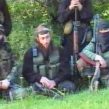
The Karachay Jamaat: Alive and Operational
Publication: Eurasia Daily Monitor Volume: 9 Issue: 118
By:

Every news item about insurgent activities in Karachaevo-Cherkessia should be put in the wider context of the general situation in the North Caucasus. On a regional scale, the events in this republic are immeasurably small, especially compared to the other North Caucasus republics or to the early Karachaevo-Cherkessian jamaat, Karachay, which was one of the first such groups in the Russian Federation (https://studies.agentura.ru/to/russia/kchr/). Members of this jamaat participated in the militant incursion into Dagestan in the summer of 1999 (kavkaz-uzel.ru, June 13). Despite that, the period of 2005-2007 became the most tragic for the Karachay jamaat as dozens of its members were killed or arrested (https://kommersant.ru/doc/670693).
Yet, in 2011 at least 34 people were the victims of attacks in Karachaevo-Cherkessia, of which 22 were killed and 12 injured – a significant increase over the four casualties in the republic in 2010 (https://karachaevo-cherkesia.kavkaz-uzel.ru/articles/198769/). This sudden increase means that authorities cannot discount the republican jamaat as something that has gone on forever. Late last year at a meeting with journalists, Moscow’s envoy to the North Caucasus Federal District, Aleksandr Khloponin, was compelled to refer to the rise in violence there by stating that: “The security situation in the district is persistently tense. Dagestan is one of the flash points where the situation is tense. Karachaevo-Cherkessia is starting to get flustered. Certain manifestations of bandit groups are starting to come up, but despite that, everything is under control” (RIA Novosti, November 29, 2011). Former Russian Interior Minister Rashid Nurgaliev was even more blunt, saying “there are outbursts of the bandit underground’s activities in Karachaevo-Cherkessia” (ITAR-TASS, November 16, 2011).
Both statements were extremely revealing for observers of the North Caucasus, as the republic had been utterly quiet in terms of rebel activities during the previous year – 2010. The officials apparently spoke not about overt activities of the militants, but rather about the fact that the Salafis managed to get organized again and to make use of their extensive network in the republic, even though the jamaat had previously lost its main base. The news was apparently painful for the Russian authorities, who closely monitored the situation in the republic. According to the Kremlin’s plans, Karachaevo-Cherkessia was supposed to become a quiet region in the run-up to the 2014 Olympic Games in Sochi. The site for those games is over 500 kilometers away from the republic by road and twice as far across the mountains.
In Karachaevo-Cherkessia and in the neighboring republics, trials of jamaat members are still occurring (Memorial Human Rights Center, “The Situation in the Conflict Zone in the North Caucasus: Rights Activists’ Assessment,” Winter 2011-2012). The resignation of Interior Minister Nurgaliev was directly connected to his failed attempt to establish control over the situation in the North Caucasus. Despite the fact that he flew to the North Caucasus several times each month, he could not get beyond the clan systems of Moscow’s regional protégés (kavkaz-uzel.ru, May 22). Nurgaliev’s appointment as deputy secretary of the Russian Security Council was in fact a gentle way of sending him into retirement.
Meanwhile, police in Karachaevo-Cherkessia conducted a special operation in the villages of Pervomaisky and Uchkent in the republic’s Malokarachaevsky district on June 12-13. Uchkent is known as an informal spiritual center of the republic’s Salafis. According to the law enforcement agencies, a group of insurgents involved in armed attacks on police officers were trapped in one of the buildings in the village. It is noteworthy that initially it was announced that three militants had been killed in the police operation. According to the Russian National Antiterrorist Committee, Dinislam Karakotov, a 26-year-old Karachai; Denislam Semyonov, a 25-year-old Russian convert to Islam; and another ethnic Karachai, 26-year-old Umar Baicharov, were killed (www.kavkaz-uzel.ru/articles/208069/). The following day, on June 14, Russian officials said in another statement that only one rebel, Umar Baicharov, had been killed (www.kavkaz-uzel.ru/articles/208123/). According to the police, Baicharov refused to surrender despite the fact they had negotiated with him, even bringing in his father for the talks. So when the militant fired shots at the police, he was killed by return fire.
It remains unclear whether the other two people, Dinislam Karakotov and Denislam Semyonov, were killed or not. They were later declared fugitives, which means they probably managed to escape as Baicharov held off the police. Since the house had been sealed off by the Russian security services, the authorities must have been confident that no one left the building and for that reason declared all the rebels to be dead. Eventually, after the police inspected the destroyed home, they must have discovered only the body of Umar Baicharov, which forced them to retract their initial statement about the number of slain insurgents they initially made on June 13. Following past practice, the Russians announced Baicharov to have been a rebel leader who allegedly succeeded Islam Uzdenov as rebel commander after the latter was killed in December 2011.
The recent clash in Karachaevo-Cherkessia demonstrates that despite the serious blows previously suffered by the Karachay jamaat, it has survived and remains operational. This is a bad sign for the Kremlin and arrives at a time when the 2014 Sochi Olympic Games in the North Caucasus moves closer. The revival of the Karachay jamaat is a threat and might be in the position to strike any part of the republic or the wider region, which makes the job of the Russian security services especially difficult. The primary problem Russian officials face is that they are not dealing with a branch of an organization, but rather with an ideology that has taken root in North Caucasian society.




